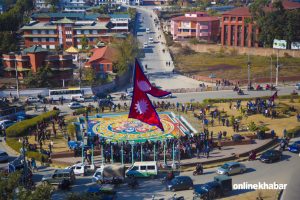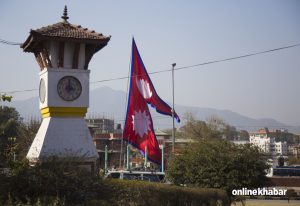
The increasing adoption of artificial intelligence profoundly is changing the old concept of labour and its reforms introduced by the capitalist industrial system. For many, this is the 4th industrial revolution.
As parts of the 4th industrial revolution, there have been updates in AI features such as ChatGPT, DALL-E and DALL-E 2, Midjourney and Alphafold. This suggests that it is not just about machines replacing human labour to save costs in the future. It will be substantial for the competitive market and has all the potential to be a game changer in the future in the use of technology.
For example, look at how these new tools work. AI-powered ChatGPT does not search the internet; it has been trained on the internet and now essentially searches its memory for the answer from storage—the equivalent ability to someone answering a question from memory.
Nepal, as a part of the globalised world, cannot remain untouched by the 4th industrial revolution. Its impact will be universal and pervasive. So, there are many questions about us today. Is Nepal ready for a big shift? It is obvious that the new industry developed as a result of the new revolution will require a lot of human resources trained in the field. Is Nepal ready for that too?
The Nepali challenges

The answers are not certain yet. Instead, there are concerns about how we are shaping our future.
There is a need for more efficiency in technological education facilities, but our reality is haunted by the digital divide even when we are required to use digital classrooms. The 4th industrial revolution demands that government bodies at different levels invest in the development of artificial intelligence tools, but our government has not been able to protect its simple websites.
In this situation, it is likely that the new innovations also create chaos. The most immediate impacts are seen in the labour market and its various tendencies. Nepal’s working-age population is expected to exceed 20 million by 2025, meaning an additional five million people will enter the workforce. In the future, the most critical demand in the country will be for mechanical skills, electricians and electrical engineers, IT professionals, chemical technicians, and entrepreneurial and managerial skills.
But, post the 4th industrial revolution, Nepal is facing a significant challenge in adapting to the changing nature of the global labour market and the rise of AI. The country’s current education system and labour market trends need to reflect quickly as fast as possible.
Addressing the issue

However, there are several steps the government and stakeholders in Nepal can take to address this issue. Investment in science and technology should be a priority, with a target of allocating budget as much of a portion of GDP to this sector to promote the current trend in technology.
The education system needs to be modernised to adherence the changing nature of the world market based on the rise of new technology. Design concepts and creation-based engineering can be achieved by importing experienced educators worldwide and transforming the curriculum into technology-focused courses.
Free skills training programmes can be established to help workers prepare for the changing job market following the 4th industrial revolution. Nepal’s government should train educators and renew the curriculum to address the advancement in technology.
It should promote specialised industrialisation strategies to address the alarm of automation anxiety in the global labour market. It should focus on transforming unskilled migration to semi-skilled and skilled migration work and the use of skill levels as a benchmark for workers entering into foreign employment. Likewise, investing in free skills training for the workers aspiring to enter a regulated foreign employment system should be encouraged.
Furthermore, the government should improve the country’s digital infrastructure and promote e-governance.
Most importantly, AI in education should be embraced, making learning materials and services accessible and easy to all. With these efforts, Nepal can prepare its workforce for the future and reduce the potential societal upheaval resulting from the adoption of AI and the 4th industrial revolution.
























